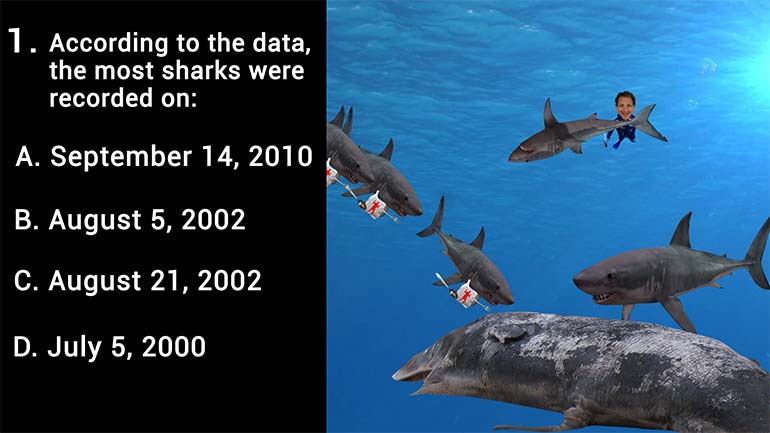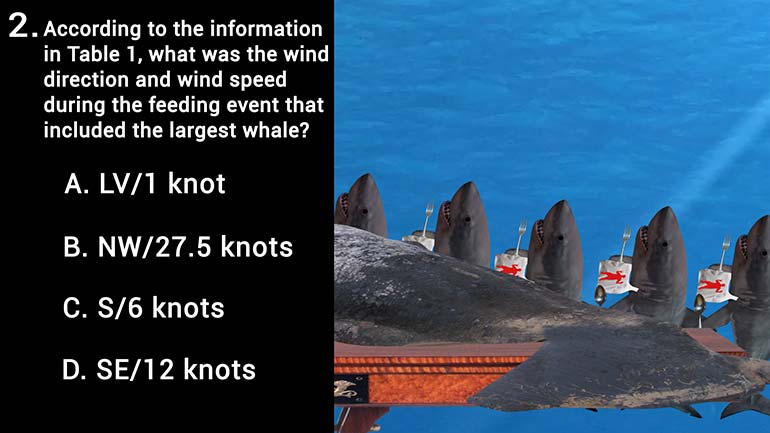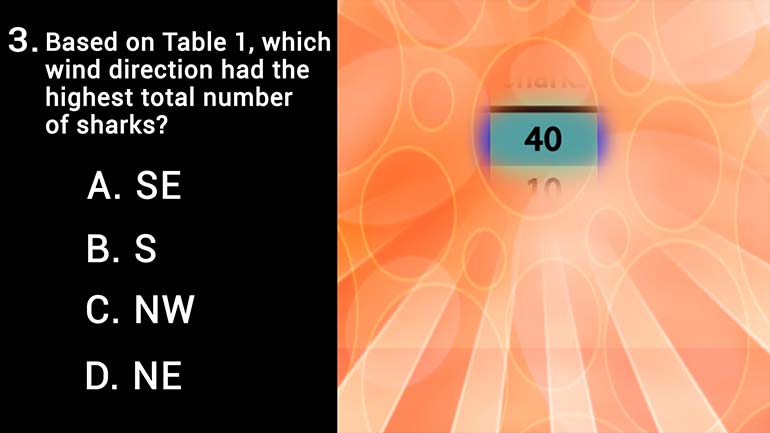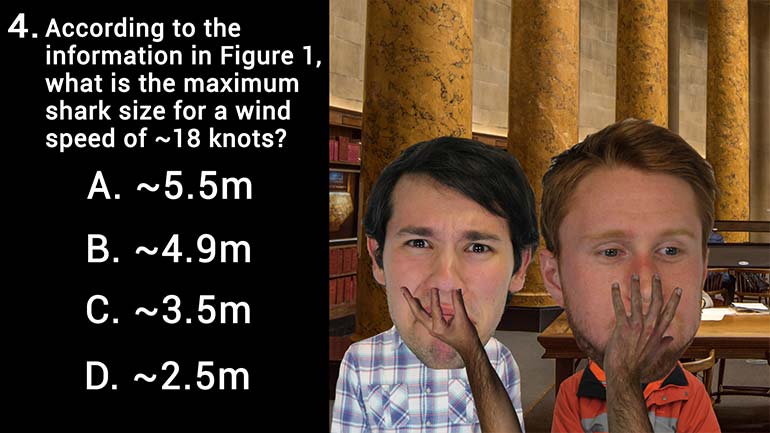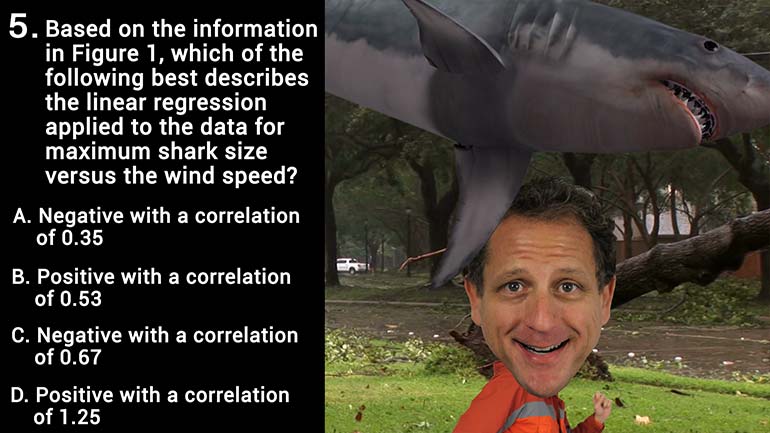ShmoopTube
Where Monty Python meets your 10th grade teacher.
Search Thousands of Shmoop Videos
ACT Aspire Science: Implementing New Data into Studies 1 Views
Share It!
Description:
A new study finds that DNA can be broken by electromagnetic radiation in shorter wavelengths than mobile phones, such as those that are present when operating microwaves ovens and wireless LANs. Which scientist does this study support?
Transcript
- 00:00
Yeah Oh okay Spyros Last one in the study It's
- 00:06
a five five year There was a way A new
- 00:18
study finds that DNA can be broken by electromagnetic radiation
- 00:22
in shorter wavelength than mobile phones such as those that
- 00:26
are present when operating microwave ovens and wireless lands Which
Full Transcript
- 00:30
scientist does this study support I was kind of weird
- 00:36
coming out of left field Scientists are just talking about
- 00:40
mobile phone usage not cooking appliances Air wireless local area
- 00:44
network Thing is you know like an X Wing fighter
- 00:47
pilot We need to stay on target here sometimes in
- 00:49
order to choose the right answer Scientist One does say
- 00:52
the mobile phones usage well can have other health effects
- 00:55
that are negative like microwave sickness syndrome But that doesn't
- 00:59
mean he cleans that Microwaves cause cancer just means he
- 01:04
thinks you should not crawl inside of one and hit
- 01:06
on And it just means he thinks that with increased
- 01:10
mobile phone usage well your microphone will more likely make
- 01:14
you woozy So the answer here is D Neither scientist
- 01:17
says any of this in like Where on Earth did
- 01:19
that one come from Yeah way out of left field
Up Next
According to the data, the most sharks were recorded on:
Related Videos
According to the information in Table 1, what was the wind direction and wind speed during the feeding event that included the largest whale?
Based on Table 1, which wind direction had the highest total number of sharks?
According to the information in Figure 1, what is the maximum shark size for a wind speed of ~18 knots?
Based on the information in Figure 1, which of the following best describes the linear regression applied to the data for maximum shark size versus...
